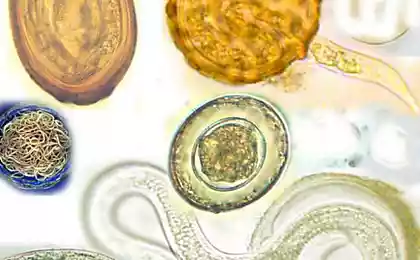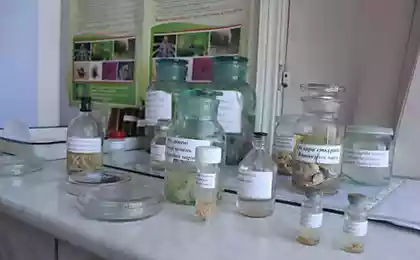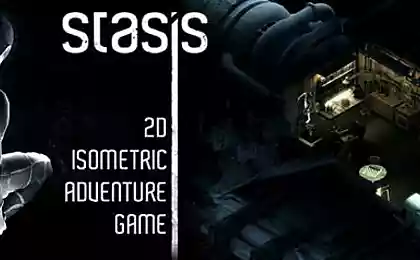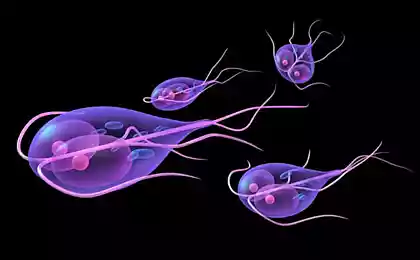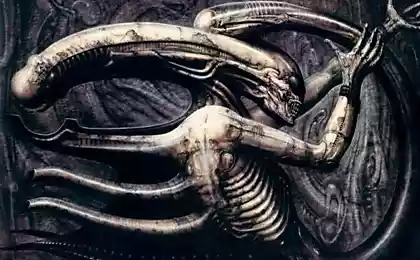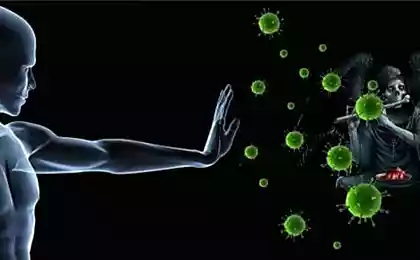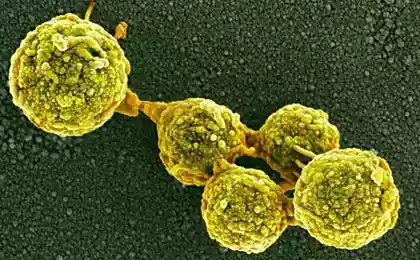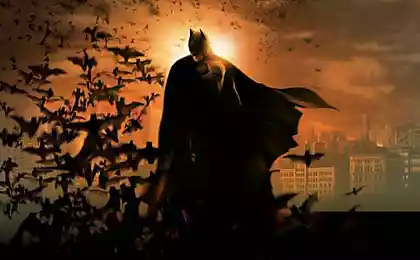535
Parasites and hosts: a biologist Yuri Stefanov of how the real disaster of "Interstellar"

Physics watching the recently released movie "interstellar" by Christopher Nolan, more or less agreed that the level of scientific accuracy is very high. However, the story that Nolan helped to tell a prominent academic scholars, begins not with physical, but rather with biological preconditions — on the Ground gradually disappear, the plants that we eat. The background of this story of the progress the creators have clearly paid less attention than the calculation of the appearance of the accretion disk around a supermassive black hole called Gargantua. Biologist Yuri Stefanov told they were wrong. Microorganisms and the composition of air relatively near future, which is portrayed in the movie, the Earth's biosphere begins to change dramatically. There is a pathogen, cleaned destroying cultivated plants: wheat, potato, okra (okra) and rapidly gets to the corn. It is argued that the proliferation and activity of microorganism in the future will change the composition of the earth's atmosphere so that it will become unusable for people because of the high content of nitrogen, or Vice versa.
I must say that from the point of view of our metabolism of various bacteria really can do wonders, using a variety of organic and inorganic compounds as the base oxidizing agents and sources of chemical energy, so the metabolism of the fictional pathogen — interesting story. There are bacteria that use atmospheric nitrogen and the bacteria that make nitrogen from the ammonia and nitrites. They sort of work in team, participating from the different parties in the cycle of this element on the planet. You can dream on the fact that some of them will make a dramatic evolutionary leap, achieving a dramatic increase in the number or performance, resulting in the composition of the atmosphere will begin to change, however, it is important to remember that in ecology everything is connected, and this effect is likely to be quickly offset by other organisms. One some mind clearly not under force to upset the balance in the biosphere nitrogen cycle. And abrupt evolutionary changes tend to occur not by themselves but in response to some systemic disturbances in the environment, or geological disasters.

On the other hand, in the history of the Earth a qualitative change in the composition of the atmosphere occurred more than once, and the evolution of life has had on this process a decisive influence. Approximately 2.4–2.3 billion years ago, a so-called oxygen revolution, due in part to the development of photosynthetic microorganisms. However, we must not forget that this process took many millions of years, and not a life time a pair of three human generations.
Parasites and hasewaga if we agree with the existence of incredibly aggressive microbe, destroying the plants, it is difficult to imagine such a development, in which the planet will disappear entire crops. One of the actual examples are extremely dangerous parasite of crop plants is the fungus Phytophthora. He, in particular, provoked the Great potato famine in Ireland 1845-1849 years. But the impact of this parasite only affects individual crops, and a certain number of plants one way or another saved from infection.
The fact that the universal pathogens is not the case, as there is not as genetically uniform species that no one individual or form will not be able to resist infection.

This point is ignored in most movies that tell us about the epidemic and different versions of the zombie Apocalypse. Even the worst pandemics in humans, such as the Spanish flu, killed more than 5-10% of the people who lived then. A movie usually need to become infected and die everything or almost everything.
The relationship of the organism with the parasite is always an evolutionary arms race. The owner evolyutsioniruet defense mechanisms and the pathogen — system around them. In the race, it is extremely rare when one person is so fast and much faster than the other, that fact completely destroys. After all, if parasitic will destroy the master, he himself will die.
Evolutionary sense in establishing coexistence. A parasite must achieve the ability to reproduce at the expense of the owner, not mowing down its population, and the owner need to a parasite or switched to someone else or simply did not prevent to live. In the case of cultivated plants the situation with the pathogens is very different from the natural because they in the fight against parasites, helping people, inventing all sorts of pesticides, antibiotics and genetic modification. Fantastic superalien will be able to destroy whole species of plants just in case if something happens with the very humanity. In the film by Christopher Nolan, it seems that this situation is meant.
Who will cause global disaster?In "Interstellar" the violation of the balance of the biosphere is accompanied by a total relaxation and apathy. Humanity ceases to invest in science and high technology, trying to maintain its existence extensive agriculture. Degraded medicine, curled in a research program in schools stop teaching science.
On the one hand, this development is quite difficult to believe, because in the film, illustrating the ruins, however, seem technology much superior to what we have now. Space shuttles, robots and powerful artificial intelligence, incubators allows to produce frozen human zygotes. All the evidence suggests that people could try to return the planet to normal. But what is the use of high-tech devices, if the vast majority have forgotten how to use them and not have the slightest desire to learn back?
Here we should mention another problem, which consciously or unconsciously reminiscent of "interstellar". Growth and development are almost always linked. Throughout its history mankind has grown, and this growth could describe a hyperbolic curve. But the increase in numbers according to this law cannot go on forever, because the small Ground will not fit an infinite number of people. It is obvious that growth at some point will stop and the number of people in the world, or settled in around 10-15 billion, or will go down. Most interesting is that this demographic transition is happening before our eyes. At the end of last century, we confidently aspired to infinity, and now stop.

But as a stop in growth will affect the dynamics of our development? What will be our priorities? How many of us will be conventional farmers who refuse MRI and stories about space exploration in school textbooks, and how the astronauts ready to dive into a Black hole? What will we do with the challenges that we will face our planet? Whether the emergence of new viruses, climate change or a threat to collide with an asteroid. I want to believe that we will be enough to save the Earth from possible disasters, and to, in the words of Murphy, Cooper, to build a new house by the light of a new Sun.
Source: theoryandpractice.ru





